I've Done the Research—These Are the Best Collagen Beauty Products for Glowing, Plump Skin
If there’s one word I can guarantee we’ve all seen banded about when someone is talking about skincare and ageing, it’s ‘collagen’. Whether you know what it is, or you don’t, it’s still a very confusing and ‘noisy’ topic for all of us. Even beauty editors like me.
High collagen levels are heralded as the way to reduce visible signs of ageing. But, with everything from drinks to £2000 treatments promising to boost your collagen levels, how do we know who to believe? Tricky, huh?
For me, I love beauty articles that lay out all the must-know information in one easy read. So that’s exactly what I’ve done. I’ve spoken to two leading skincare experts - Dr David Jack, Leading Aesthetics Doctor and Dr Ahmed El Muntasar, GP and Award-winning Aesthetics Doctor - and asked them some important questions about what collagen is, why it’s important and whether it can be boosted with skincare, treatments or even drinks. And if it can, which ones?
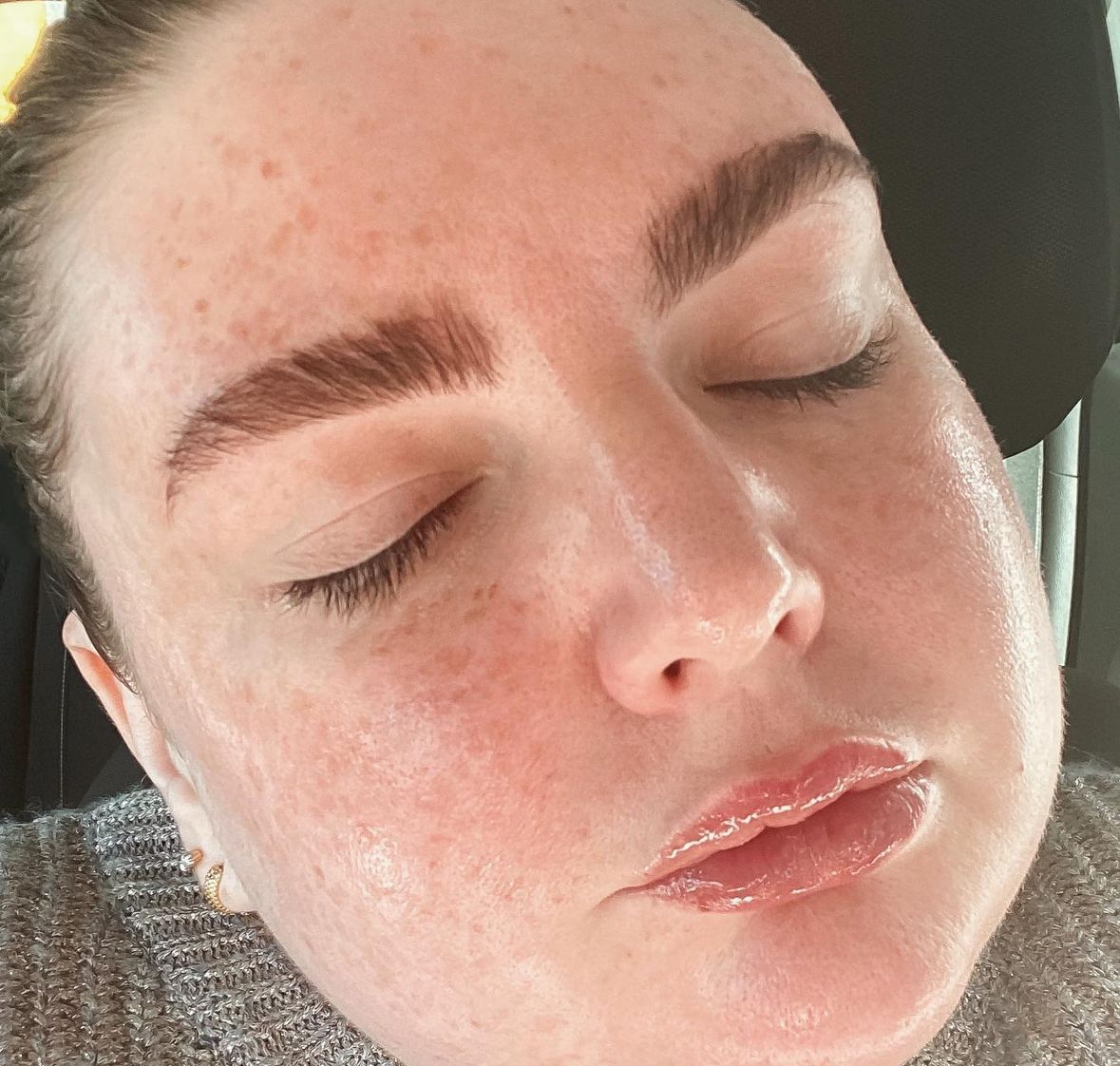
Keep reading for an all-round guide to collagen. I’m here to help you spend your time and money wisely by separating fact from unproven. Let’s go on this journey together and bust some myths about how you can best boost your own collagen levels. I’ll start with the basics, then get in to the nitty gritty. Buckle up.
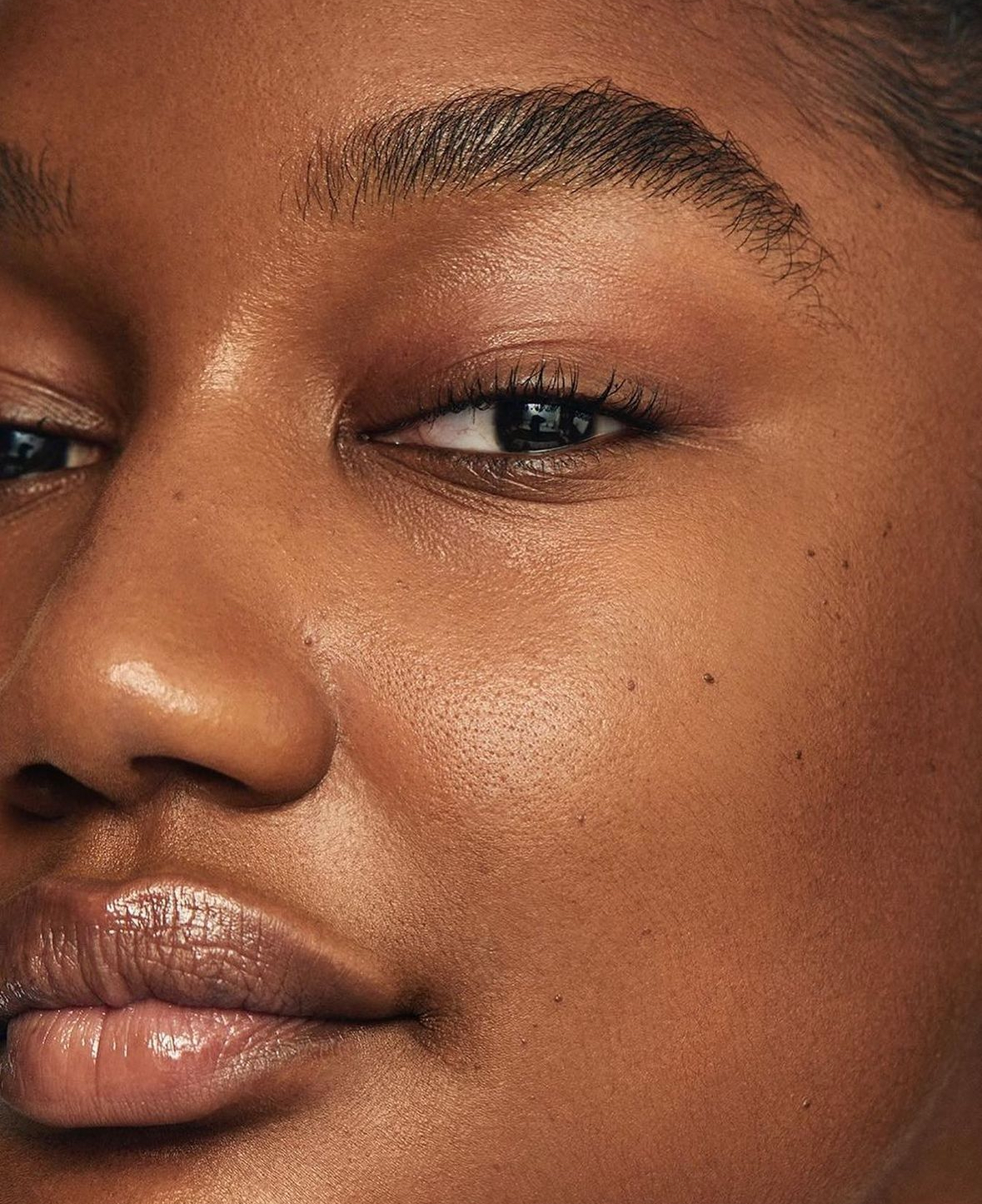
What Is Collagen and What Does It Do?
Put simply, collagen is the ‘scaffolding in our skin’ that keeps it firm and lifted, with good elasticity. Without it, skin would sag, wrinkle, and lack structure. Dr Jack explains that this is particularly important in the dermis level of our skin, where “it forms a dense scaffold matrix supporting the skin’s overall architecture”. “There’s a constant turnover of collagen fibres in the skin by cells called fibroblasts, with collagen being built up, but then also broken down by factors such as UV light, glycation and inflammation” says Dr Jack. He explains that this loss of collagen is further accelerated by ageing and changes in hormone levels. This is why skin starts to show signs of our increasing age, including the development of fine lines and wrinkles – especially if we don’t do anything to protect against the other factors such as UV light by wearing SPF.
To keep skin looking youthful (if that’s your own preference), we need to protect our collagen levels as much as we can, as well as implement things that boost our collagen production.
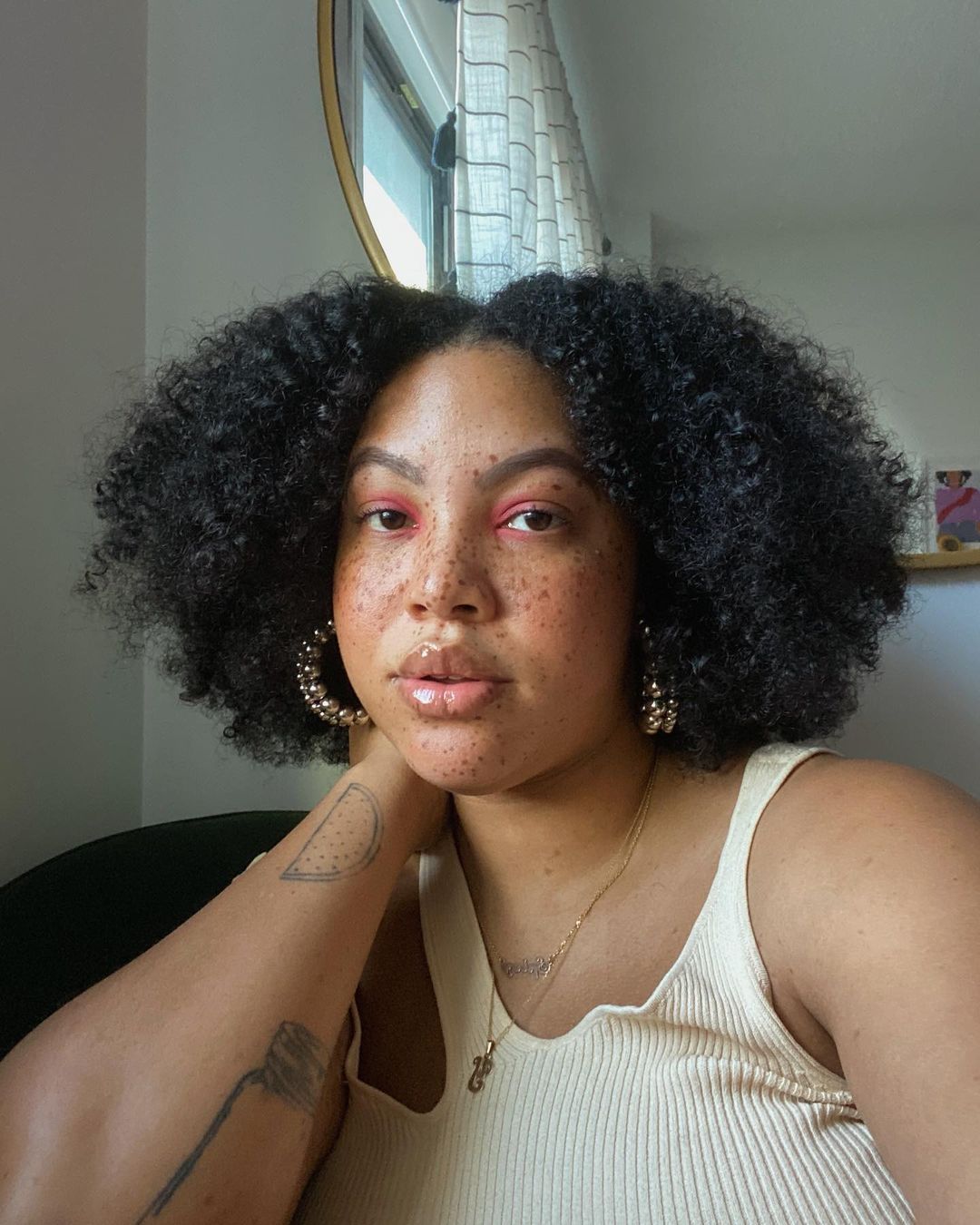
What Causes Collagen to Deplete?
Dr El Muntasar shares an alarming statistic – “from the age of 25 onwards we lose about 1% to 1.5% of our collagen production every year.” As well as ageing and the accompanying changes in hormone levels, there are many external factors that contribute to collagen breakdown too, by damaging the collagen matrix itself and also the collagen producing fibroblast cells. Dr Jack explains that these include “UV exposure from the sun, glycation, inflammation, pollution, smoking, and even stress (resulting in higher cortisol levels). Lifestyle choices such as diets high in sugars and inflammatory molecules, and lack of sleep, can also negatively impact collagen production, speeding up the inherent ageing process.”
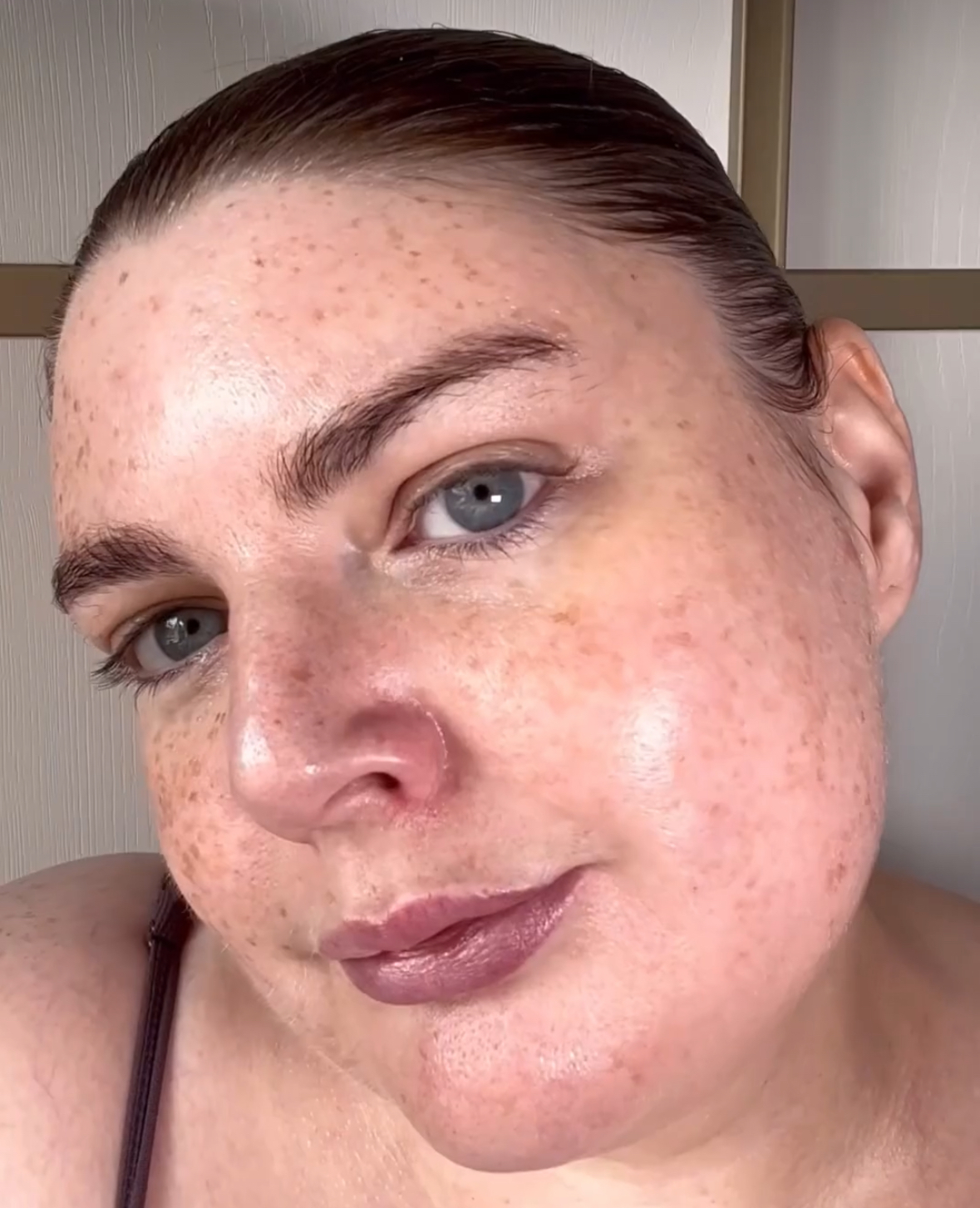
After ultherapy.
How Can You Increase Your Collagen Levels?
Remember I talked about the ‘noise’? Well, this is where you’ll find it. There’s a lot of debate amongst brands and dermatologists about what types of products and treatments can have an effect on your collagen levels and on your collagen production. A lot is still unknown and unproven. For example, Dr El Muntasar says that “the research is a little bit shady when it comes to oral collagen” and he also says that applying collagen topically “does not do anything because collagen is too large a molecule” to penetrate deep into the skin. That’s why you need to look at a brand’s product claims with scepticism and do your own research on what the experts say.
However, there is irrefutable scientific evidence for certain treatments and certain skincare ingredients’ ability to boost collagen production. Dr Jack explains that these include treatments such as "microneedling, fractional radiofrequency (for example Morpheus8), laser treatments (such as fractional laser), and injectables like Profhilo or Polynucleotides.” In terms of skincare, he says that “retinoids and peptides are well-known for their collagen-boosting effects. Topical vitamin C is another important skincare ingredient that helps to stimulate collagen production, while also protecting against damage to collagen fibres. It works particularly well when combined with Vitamin E and other antioxidants.”
The In-Clinic Treatments That Boost Collagen Production
1. Ultherapy
Ultherapy is a non-surgical, micro-focused ultrasound treatment that really helps tighten, lift and sculpt the jawline, neck and chest. It creates a thermal effect under the skin to jump-start our body’s collagen production process. I spoke to Dr Maryam Zamani, Oculoplastic Surgeon and Facial Aesthetics Doctor to better understand the key features and benefits of this treatment. She champions it and “believes that it’s the best micro-focused ultrasound available because it allows you to visualise the depth that you are treating and in the proper candidate has amazing results with just a single, one hour treatment.”
Prices start at £800 for brows and can increase to £2000-£3000 for larger areas such as the jaw, neck and chest. So, this isn’t a ‘oh let’s give it a go, why not?’ kind of treatment. It’s an investment, so it’s important to find out as much as possible and really look at those before and after images online. Those who have the treatment will begin to notice results (tighter, firmer, more contoured skin) after 3-6 months says Dr Zamani, as new collagen works to lift and tighten the skin. Results can last for 1-2 years.
My Review: I had Ultherapy on my jaw and neck just over two years ago. If you don’t have a high pain threshold, I would give this one extra thought. We’re all friends here, so let me be real – for me, it hurt… quite a lot. While you can take painkillers to minimise the sting from the laser (which can happen hundreds of times in one treatment dependent on the surface area being covered – for me, 350 times), it was also painful for me after the treatment was over. My face felt like it was bruised even although it wasn’t, and it looked swollen for a few days. It was difficult for me to sleep on the first night and lay my face on the pillow. Dr Maryam Zamani says that “Ultherapy can be uncomfortable because of the depth at which it works. I recommend my patients to take Ibuprofen and Paracetamol 1-hour before treatment. I also recommend they come in well rested and, if possible, relaxed. The most discomfort happens in the first 20 minutes, and it is characterised by random shots that cause a little sharp twinge into the skin that disappears in seconds. There is no pain after treatment, however you will feel sore (like a workout) when you wash your face. Whilst there is no downtime, your skin might appear flushed at first, and any redness should disappear within a few hours. Any swelling, tingling or tenderness to the touch experienced are mild and temporary.” Whilst this wasn’t entirely my experience, it’s good to know we all feel things differently.
What results did I see? I was really happy with how firm, tight and contoured my jawline looked when the treatment took effect. After 5-6 months I didn’t have ‘jowls’ anymore. After one and a half years passed, these started to creep back in. Dr Zamani says that “while the treatment won’t duplicate the results of a facelift, it’s a clinically proven non-invasive alternative for those not ready for surgery—and can even be an option to extend the effects of cosmetic surgery when used with Botox and fillers. It is forever my go to for sagging – also very effective in treating wrinkling, loss of volume, neck bands, crepe-y decolletage, nose to mouth lines and heavy brows.” What do you think? Up for it?
2. Microneedling
Microneedling is a minimally invasive treatment that uses small needles to puncture the skin. GP and Award-winning Aesthetics Doctor, Dr Ahmed El Muntasar explains that “this causes calculated medical trauma to the skin. These needles go in and out at 90 degree angles to create microscopic channels in the skin, and our skin responds to this by healing and making more collagen. This can help with acne, scarring, with skin quality, skin brightness, pigmentation and so many different things.”
Microneedling is suitable for all skin types. However, it’s not suitable for those who are on blood-thinning tablets or who have blood-clotting disorders. It’s also not suitable for those that have a skin infection in the treatment area. Results from microneedling can be seen from 1-4 weeks and you’ll need anywhere from 3-8 treatments.
It’s not pain-free as you are essentially puncturing the skin and more often than not, it bleeds. You do get a numbing cream applied to the treatment area to minimise the pain, but I found that it doesn’t remove it completely. I actually found the most unpleasant time to be after the treatment, once the numbing cream had worn off. My whole face stung for around 24 hours, like quite severe sunburn would feel. I also had very visible redness for a couple of days. It’s definitely important to factor this into your decision.
My Review: Results wise, I didn’t really notice any with regards to skin firmness, tightness or fine lines. For me the discomfort far outweighed the results, so it wasn’t a form of treatment I ever tried again. I’ve heard it work well for so many other people however, especially with acne scarring. At around £300-£400 for an average course of five treatments, it is a less expensive treatment to take a gamble on.
3. Polynucleotide Injectables
I’m guessing you’ve heard of this by the other name it goes by – the ‘salmon sperm’ facial. It’s everywhere at the moment, so I spoke again to Dr El Muntasar to find out more about it. He explains that “polynucleotides are essentially bands of nucleotides. Nucleotides are the building blocks of our DNA. They extract it from salmon or from trout, because they’re quite similar to the human DNA. You then create a gel from it which gets injected into the skin. This increases collagen production, hyaluronic acid production and elastin production, and it maintains the skin integrity and skin health.” Wow, high tech or what!?
It costs around £300-£500 for the average treatment and is supposed to be no more uncomfortable than similar injectables. Results can be seen at around 90 days since change is at a cellular level. It’s worth noting that it is not a suitable option for those with fish allergies or those pregnant or breastfeeding.
4. Morpheus8
Dr David Jack, Leading Aesthetics Doctor, explains that this is a fractional radiofrequency treatment that stimulates collagen production, and has a skin tightening and lifting effect and minimises the appearance of fine lines. It’s one that he offers at his Harley Street, Belgravia and Edinburgh clinics and says is one of his most popular treatments. Dr Jack explains that Morpheus8 “uses ablative radiofrequency technology which is delivered into the dermis and subdermal layer of the skin using gold-coated microneedles, which creates micro-injuries and heats below the surface of the skin. This then stimulates the production of collagen and elastin by the skin’s fibroblast cells.“
On the face, prices start at around £650 for the eye area and go up to around £1450 for the face and neck. Dr Jack says the discomfort level is a two out of five and you do get anaesthetic injections to numb the treatment area first. You’ll need an average of three treatments, spaced one month apart and results can be seen in 3-6 months.
The Best Collagen Beauty Products
The Best Collagen Beauty Products, Listed
- Dr David Jack Good Night Night Cream
- Dermalogica Pro-Collagen Banking Serum
- Facegym Active Collagen Wonder Serum With Phyto-Retinol and Hyaluronic Acid
- 111SKIN Repair Sunscreen SPF 50+
- Mz Skin Light Therapy Golden Facial Treatment Device
- Elemis Pro-Collagen Future Restore Serum 30ml
- Dr Dennis Gross Vitamin C and Lactic 15% Vitamin C Firm and Bright Serum
- Medik8 Crystal Retinal 1 Serum
- Dermatica Prescription Personalised Formula
- Murad Rapid Collagen Infusion
Best For Fine Lines & Wrinkles
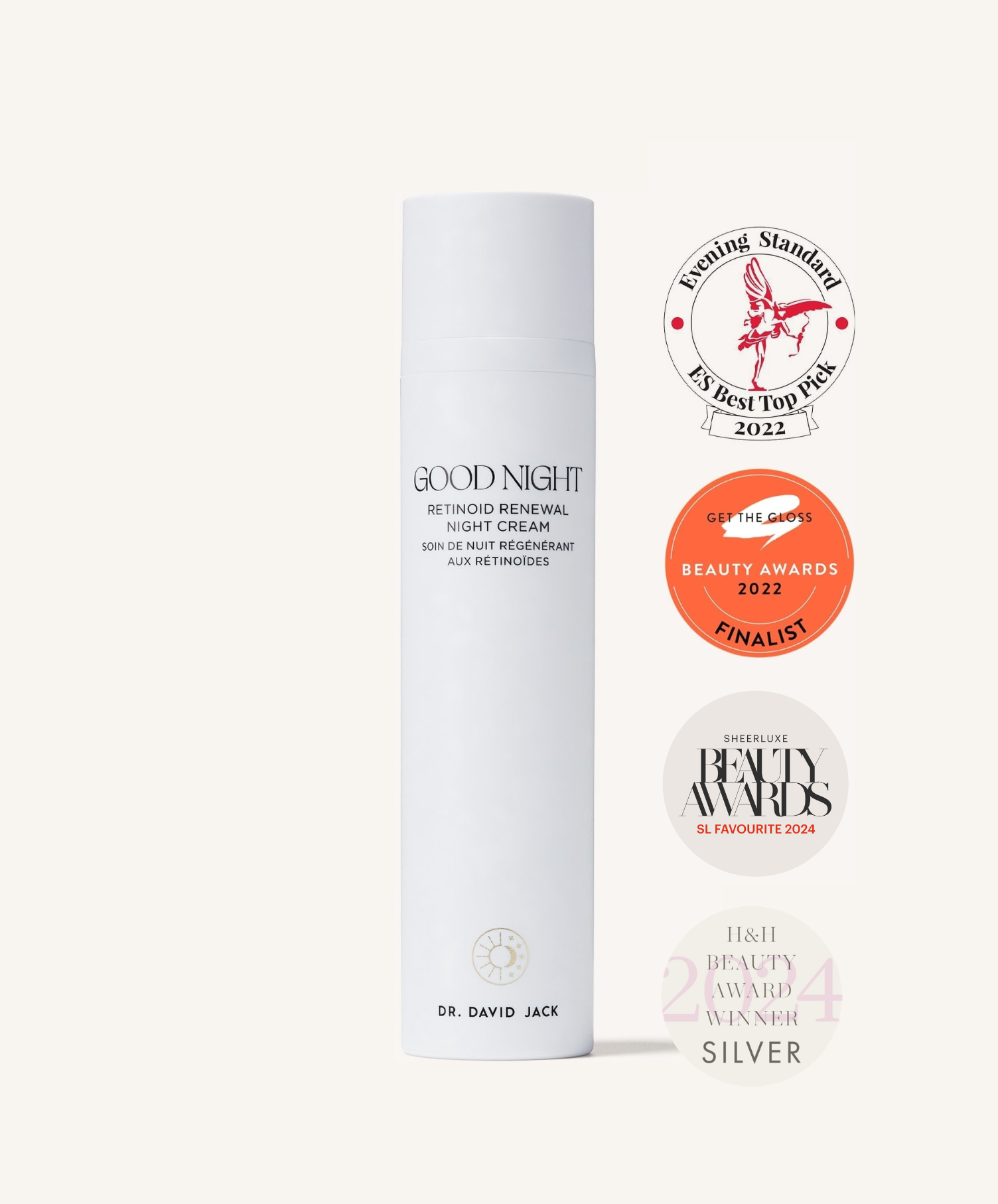
This night cream from aesthetics doctor Dr David Jack, has been created to reduce visible signs of ageing by stimulating collagen production. It contains granactive retinoid (a potent retinoid that has enhanced collagen stimulating activity) together with peptides to promote collagen synthesis.
Pros: Developed over 3 years with leading cosmetic scientists, it contains proven ingredients that boost collagen production. It’s also won a host of beauty awards.
Cons: At £120 for 50ml, it’s not the most affordable option.
Best For Preserving Our Existing Collagen
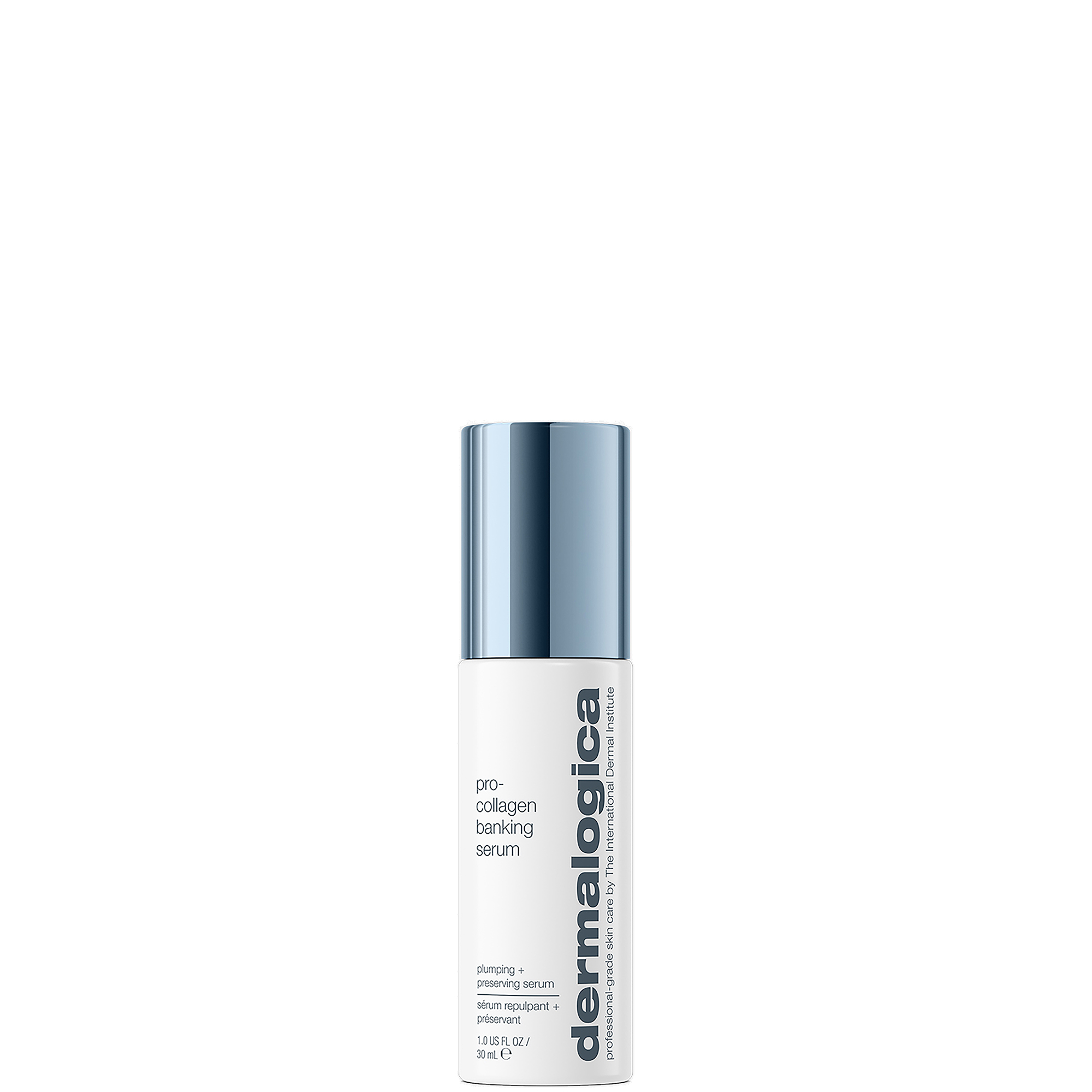
The term collagen banking refers to protecting and preserving the collagen in our skin. By preserving our collagen levels, we will benefit from smoother, firmer, and plumper skin for longer, helping to reduce the look of fine lines in the future. It contains a unique pro-collagen preservation complex with Collagen Amino Acids (the building blocks of collagen) and Carnosine Dipeptide - an antioxidant that fights free radicals, protecting against collagen-damaging oxidative stress. It also has anti-glycation properties, to protect against another collagen-damaging lifestyle factor.
Pros: Dermalogica know that applying collagen topically is of no use, so this serum focusses on protecting the collagen you already have.
Cons: There aren’t any. As well as offering collagen banking benefits, it also plumps the skin with hydration, moisturises and brightens the skin.
Best For Those Who Have Never Used Retinol
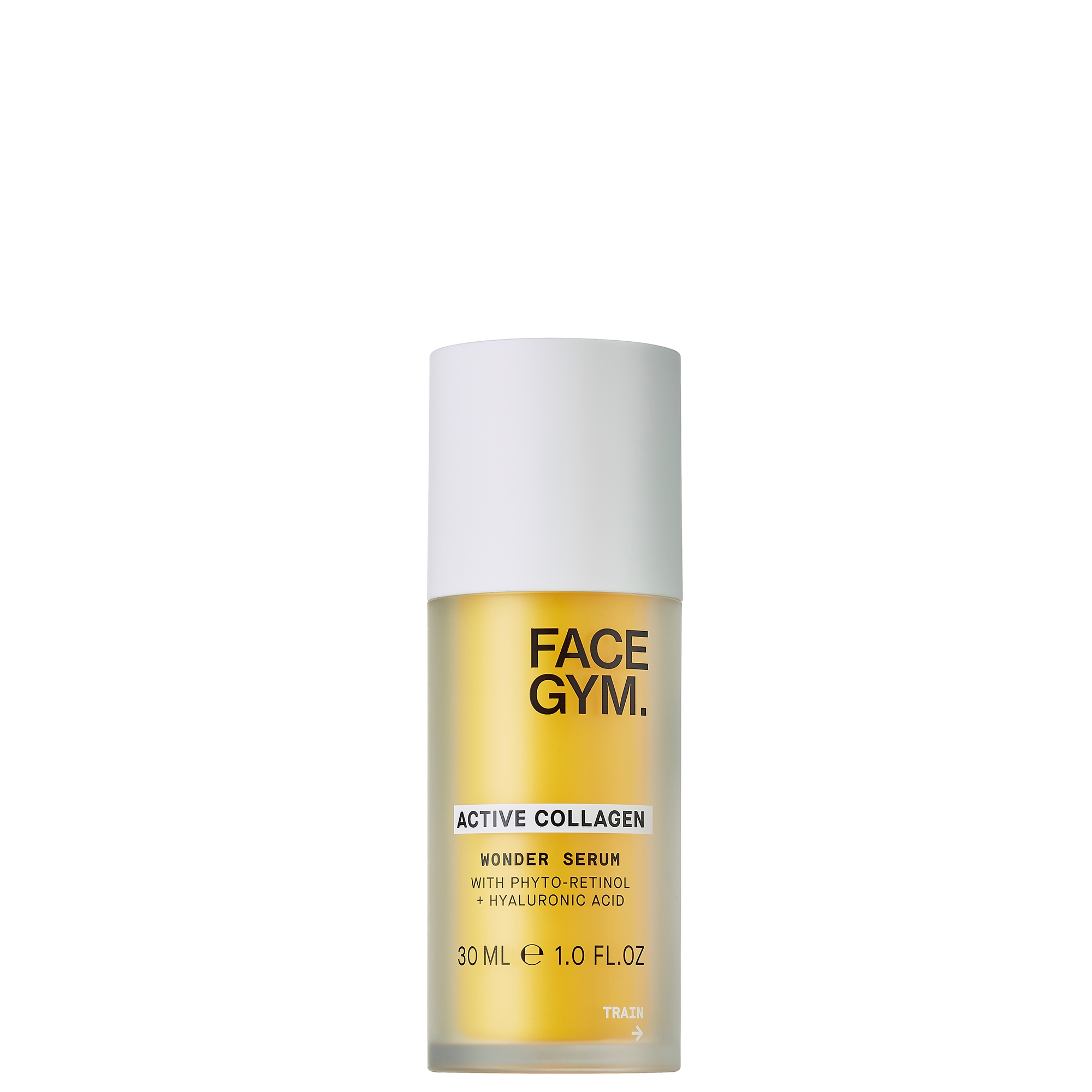
This is pretty-high tech. It contains a Biotech Collagen Fragment – a lab-created ingredient closely resembling type III human collagen but fine-tuned to deliver the ingredient where it needs to go in the skin for targeted treatment. It promotes skin’s natural ability to produce collagen and fortifies the collagen we already have. It also contains antioxidant Carrot Seed Oil which protects collagen stores against environmental stress, and traditional Japanese medicine ingredient Quercetin, which is clinically proven to increase skin antioxidant activity and protect collagen stores.
Pros: Clinically Proven to Boost Collagen by up to 32% and Elastin up to 29% - Type I Collagen. In-vitro study on human 67-year-old fibroblast cells.
Cons: Again, at £95 for 30ml, it isn’t the cheapest option.
Best For Avoiding Sun Damage
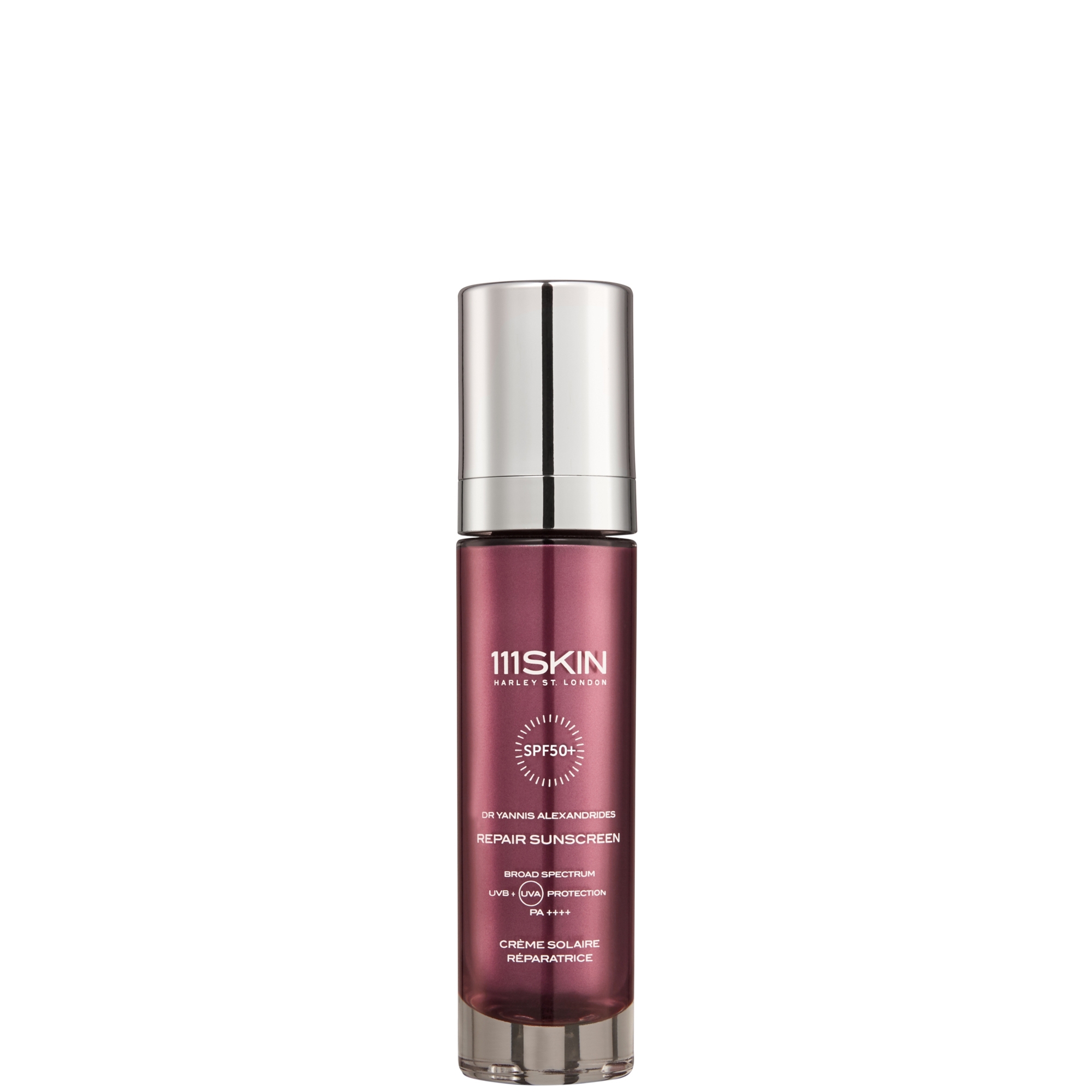
As we have learnt from the experts, wearing SPF protects collagen against UV related breakdown. There’s no point in any of your skincare or treatments, if you don’t do this basic thing every day to protect against UVA, UVB, blue light, and pollution – and this SPF does all of that, which helps protect your collagen stores.
Pros: It also benefits the skin in many other ways – it has ingredients to brighten, refine skin tone and texture, hydrate, and reduce redness.
Cons: It is expensive, but it’s not just an SPF. I think that if you’re going to invest in anything, this should probably be the first thing.
Best For Glowing Skin

If you really want to get serious with your skincare, the best and first ‘gadget’ you should buy is an LED mask. It’s a total game-changer and you’ll be amazed at the results if you use it daily for just 20 minutes. Not only does it brighten the skin, reduce hyperpigmentation, and refine skin texture, it also reduces collagen-damaging inflammation, and stimulates collagen production by targeting the collagen-producing fibroblast cells.
Pros: All my LED masks have lasted years. So, if you use it daily, it works out at a cost of just pennies per day.
Cons: It has a huge price tag, but it’s one of the best investments you’ll make for your skin.
Best For Skin Health
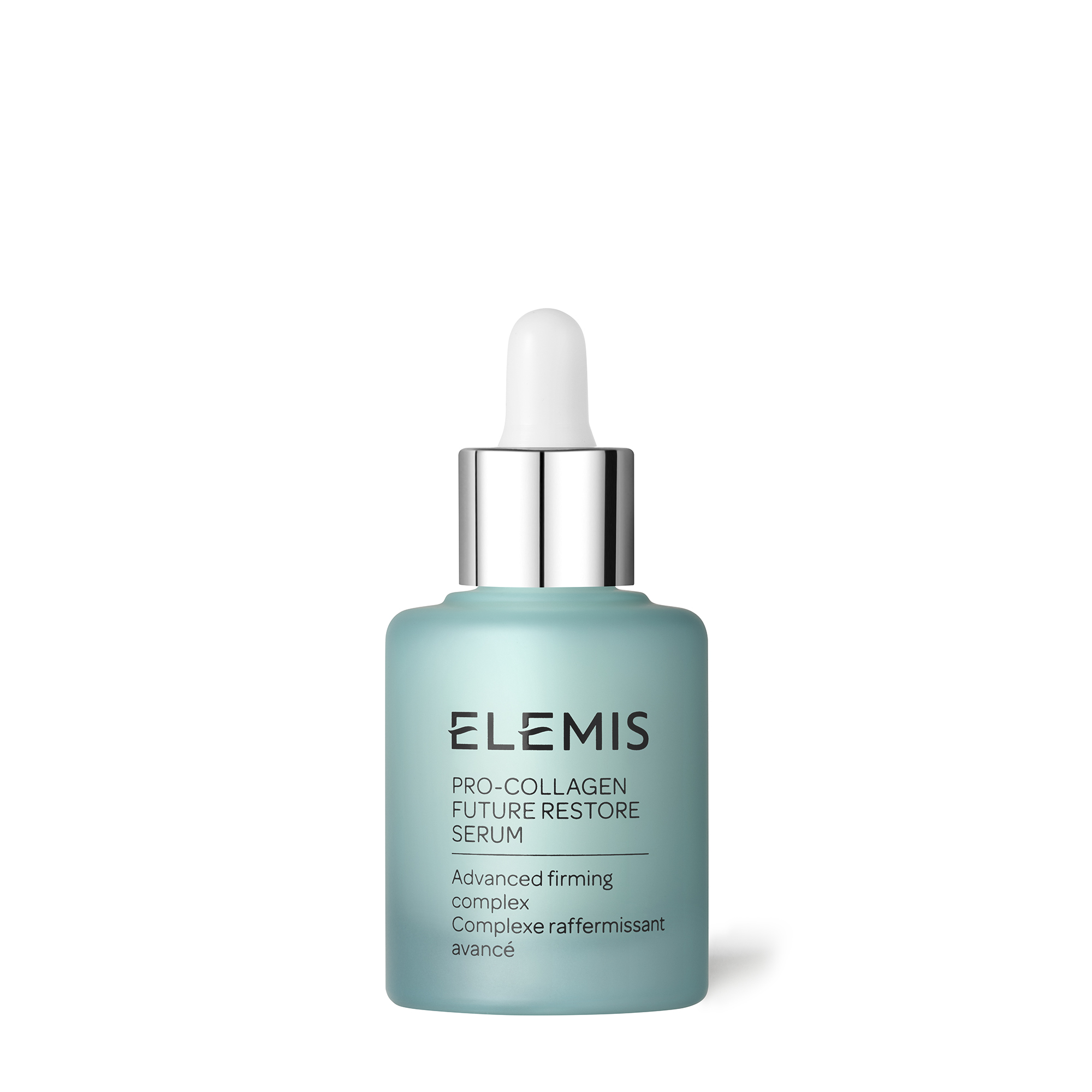
This new innovation by Elemis uses an exclusive trio of marine algae diatoms that promote collagen production and optimise the skin’s overall health for collagen synthesis. This advanced biotechnology uses the power of the ocean to hydrate, revitalise and promote skin resilience; helping to reduce the effects of collagen decline on the skin and optimising the health of the skin for better collagen synthesis.
Pros: Clinically proven to increase firmness by up to 46% in just 4 days – 30 people tested over 4 weeks.
Cons: There are a lot more powerful products you could get to promote collagen production, such as potent vitamin C and Vitamin A products, but this product is amazing at optimising your skin for collagen synthesis.
Best For Brightening
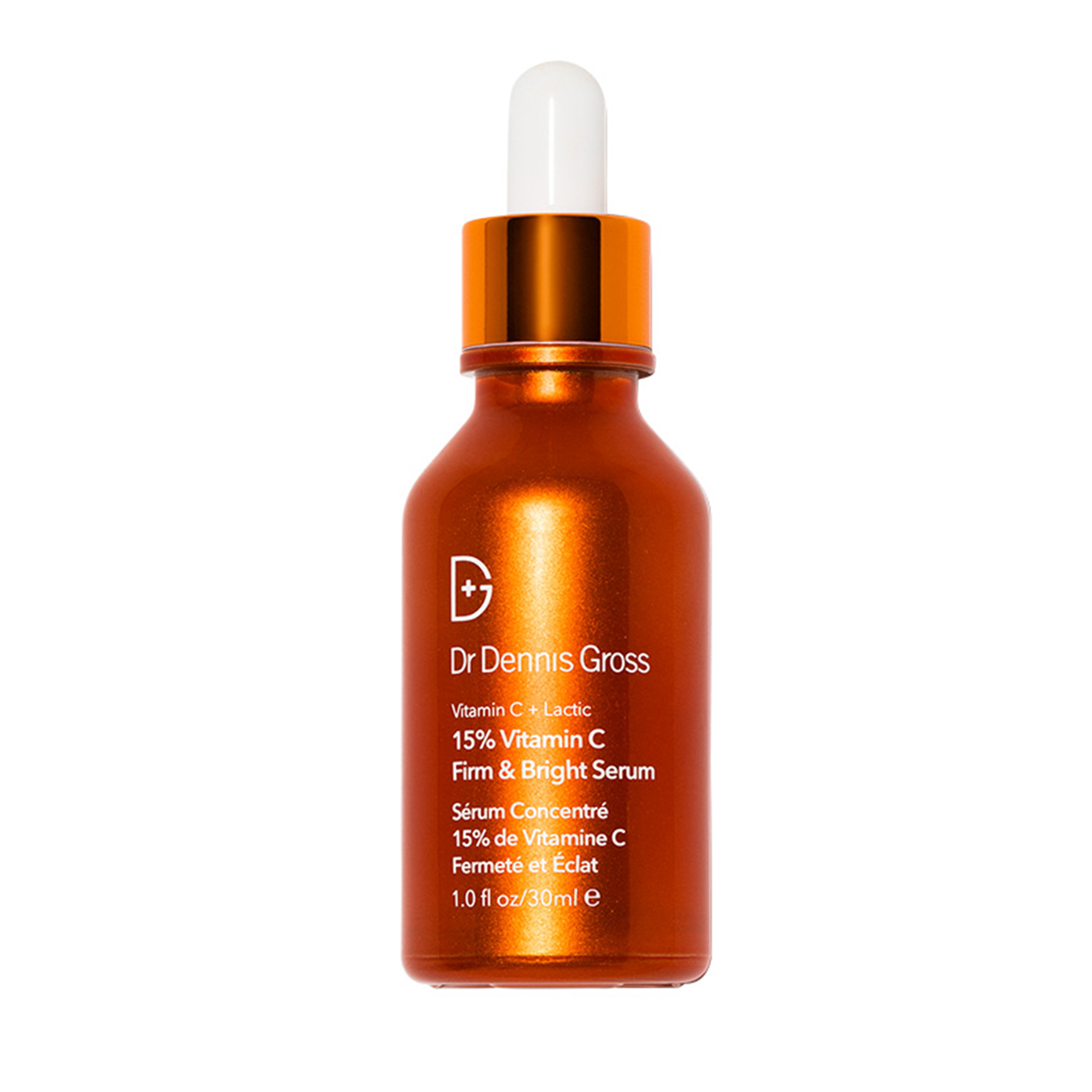
Vitamin C is a key ingredient in collagen synthesis if at a high enough concentration and form, and at 15% L-Ascorbic Acid, this is a potent dose and in its purest form. As well as stimulating collagen production, it’s also a powerful antioxidant that repairs and protects skin cells from damage that would lead to collagen breakdown.
Pros: Dr Dennis Gross is a renowned dermatologist and dermatologic surgeon, who specialises in treating skin cancer. His formulations are powerful and reliable with no messing around.
Cons: There are none – all of the ingredients in this serum help support the skin and protect it from environmental aggressors that damage collagen.
Best For Existing Retinal Users
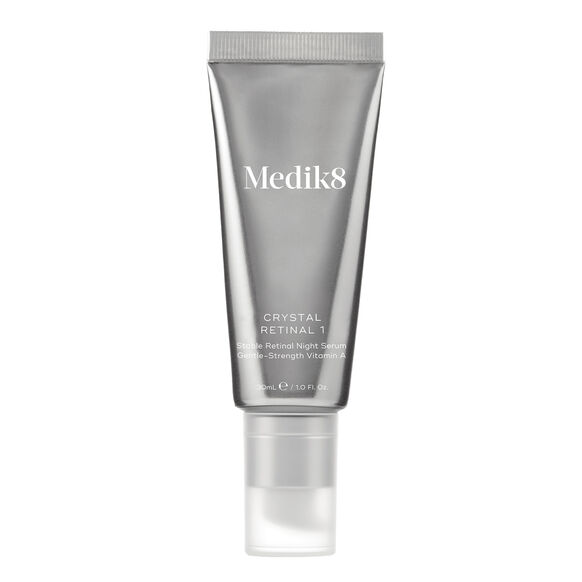
This range of retinal serums from Medik8 are widely heralded as the best you can use other than prescription retinoids. Crystal Retinal number 1 is the lowest (but still powerful) retinal concentration. If you are new to retinals, you would start with this, and slowly progress to number 24. Retinols, retinal and retinoids (all forms of Vitamin A) are all proven to increase collagen production but each to a different degree of effectiveness due to how the body processes them. Retinal works 11 times faster than retinol. Whilst retinals can be difficult to stabilise in formulations, Medik8 are at the top of their game with this product.
Pros: Medik8 continuously test this product in independent research studies, so you know it works and is the best it can be.
Cons: Retinals can cause irritation and peeling if your skin isn’t used to it. That’s why you should start first with a retinol, then progress to Crystal Retinal number 1.
Best For Fastest Results
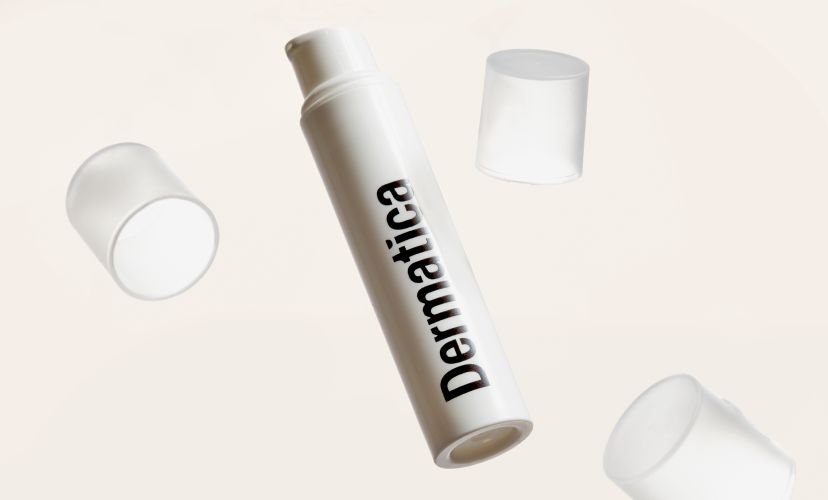
If your skin is already well accustomed to retinal at a high concentration, you might be ready to progress onto a prescription retinoid, which is even stronger and works even faster at stimulating those fibroblast cells to synthesise collagen fibres.
Dermatica is an easy way to get a prescription retinoid without paying to see a private dermatologist as it’s all done online. They assess your skin needs from photographs and start you off on a low dose. They also include other potent ingredients customised to you. Every month you get your formula in the post to apply, and over time it will increase in strength.
Pros: It’s very affordable at just £24.99 per month.
Cons: It will greatly irritate and dry out your skin if you are not ready for a prescription retinoid. Even if you are, you might want to think about starting with applying it every second night until your skin is accustomed.
Best For Boosting Results of Other More Active Treatments
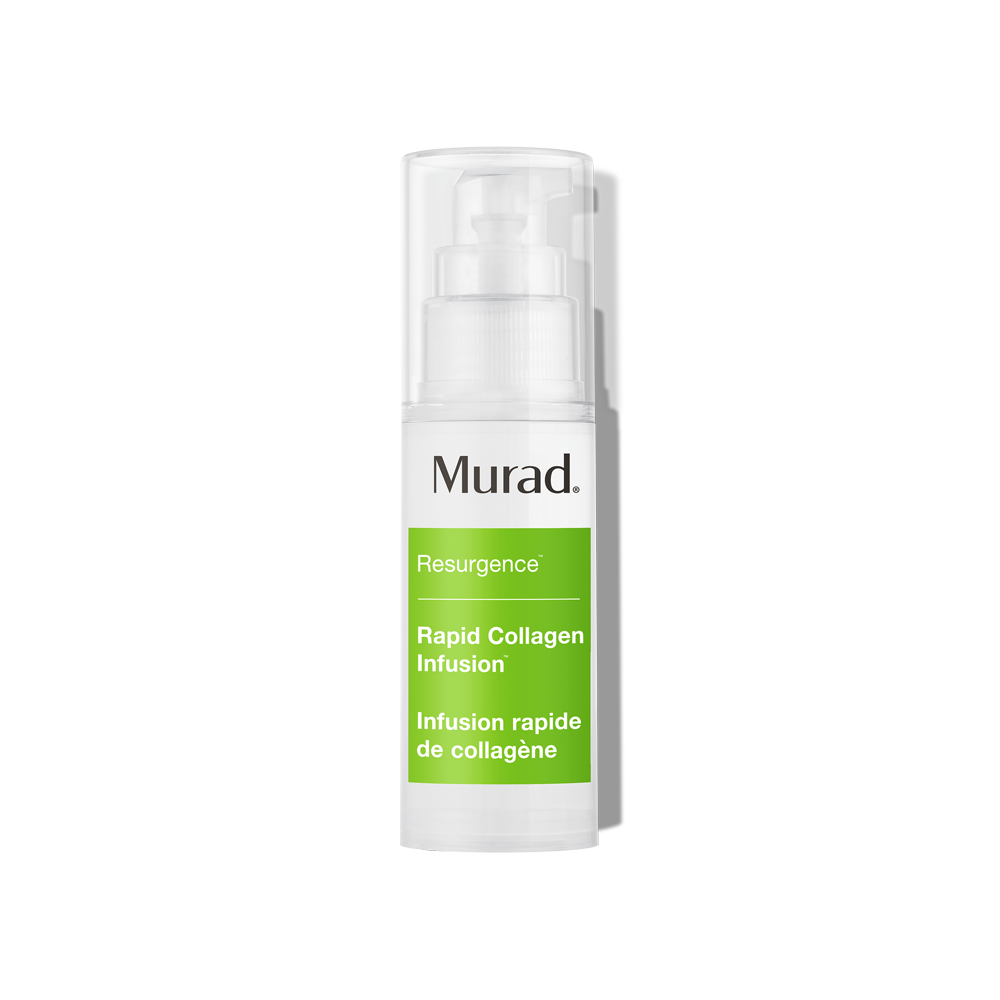
As we have learned, collagen can't be absorbed through the dermis in its whole form. It needs to be broken down into smaller peptides or amino acids that can be absorbed. This serum by Dr Murad uses collagen amino acids to promote collagen and elastin production, that in turn increases skin firmness and elasticity. They are a key building block of collagen and are fundamental to its production. Amino acids also have a key role in overall skin health.
Pros: The texture of this is divine and my skin loves it.
Cons: Whilst amino acids do optimise skin health and promote the production of collagen, the degree to which they do is variable. I wouldn’t rely on them, but instead use this serum in addition to a Vitamin A, Vitamin C and peptide product to increase its efficacy.
Laura Pearson is a freelance beauty editor and broadcaster that has been writing about beauty since her first published article in 2003. For over 20 years she has been putting beauty products and treatments to the test, to help readers understand what to spend their money on. In that time, she has had a column in The Scotsman, been a beauty journalist for Metro UK and Yahoo! Style, and even written the luxury beauty and style pages for the now-extinct Caledonian Sleeper train on-board magazine. With hundreds of beauty articles to her name across print and digital, she has amassed a huge bank of product and ingredient knowledge. She has appeared many times on television and radio sharing her beauty tips, such as for the BBC, and she has a strong Instagram following who love her makeup and skincare content there too.
She has a particular love for luxury beauty and can never say no to a new lip balm or lip oil. She lives in Glasgow. Scotland with her husband and tiny Chihuahua.